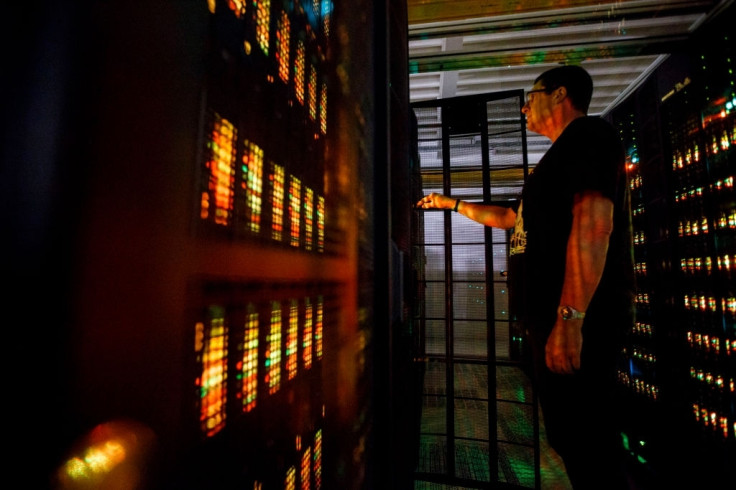Sunway TaihuLight: Chinese scientists use world's fastest supercomputer to create the biggest virtual universe
Simulation of the cosmos could help scientists investigate the universe's deep buried secrets and issues.

Scientists in China have created the biggest virtual universe using Sunway TaihuLight – the world's fastest supercomputer. The computer used a total of 10 million CPU cores, running multiple instructions on each, to increase the speed of the calculation and simulate a universe five times bigger than the one created by astrophysicists at the University of Zurich in Switzerland last month.
The Chinese simulation, carried out at Wuxi's National Supercomputer Centre two months ago, was disclosed to the public on 26 July by Wang Qiao, a scientist who took part in the project. The process delivered the biggest virtual universe, but it only lasted for an hour as the Chinese centre had other clients waiting to use the super machine. Europe's project lasted for about 80 hours.
Gao Liang, chair scientist of the computational cosmology group in the National Astronomical Observatories, said they simulated the origin and early expansion of the universe using 10 trillion digital particles, the South China Morning Post reports.
The universe can be simulated by breaking down its mass into particles, which interact with one another through physical forces such as gravity. An increase in the number of these particles intensifies the calculation, allowing scientists to replay and forecast the universe's evolution more precisely.
Use of the virtual universe
Simulation of the cosmos could help scientists investigate deep-buried secrets of the universe and issues such as the nature and spread of dark energy, matter. Chinese researchers hope to come up with new findings about the birth of the cosmos within three years using Sunway TaihuLight or its high-performing next-gen successors. They will also deploy other advanced technologies to probe the universe.
Sunway's performance
Though Chinese supercomputers never operate at full capacity due to possible hardware glitches, Sunway delivered unprecedented performance while running the virtual universe project. The system remained completely stable as its chips handled the assigned tasks without overheating.
"The Sunway was stretched to its limit by the task, but it remained healthy," according to Gao. "This is just a warm-up exercise. We still have a long way ahead to get what we want."
As the simulation ran only for an hour, Gao expressed his regret saying: "We just got to the point of tens of millions years after the Big Bang. It was still a very young stage for the universe. Most galaxies were not even born."
The current age of the universe is 1.3 billion years and in order to simulate its entire evolution as Gao hopes, the research team would need a longer run-time on Sunway or its successor.
Built entirely from domestically produced chips with exceptionally low energy consumption, Sunway has topped the world's supercomputer chart since June last year. It can operate at a whopping 93 petaflops (a thousand trillion floating point operations per second) and is way faster than some of the world's most powerful machines such as the Titan in the US, the K computer in Japan and Tianhe-2 in Guangzhou. China's next high-performance computer will apparently be 10 times faster and is expected to be ready by 2019.
© Copyright IBTimes 2025. All rights reserved.





















